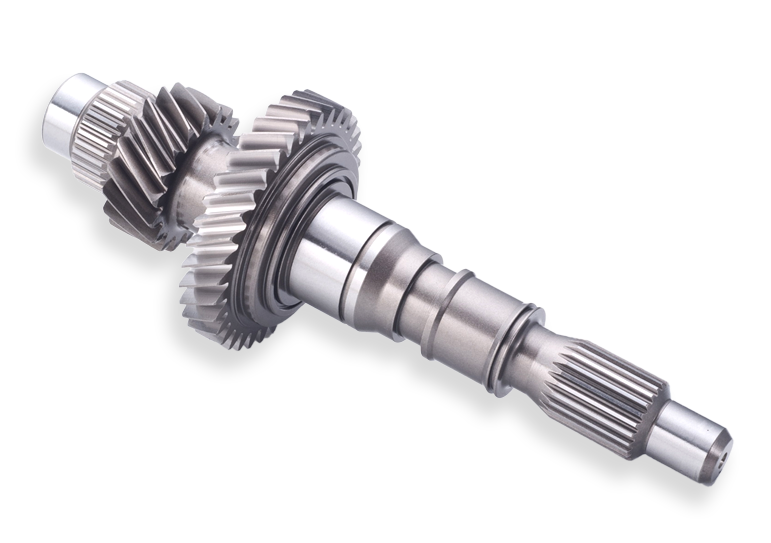Helical gear
The characteristics of helical gears include angled teeth that allow for smoother power transmission compared to spur gears, reducing vibration and noise. This design can withstand higher axial loads and provides a wider contact area, enhancing transmission efficiency.
Helical gears are commonly used in applications that require high speeds and large torques, such as helicopter rotors, wind turbines, and ship propulsion systems. Additionally, helical gears are frequently found in heavy-duty equipment like engineering machinery, saws, and drills, offering smooth and efficient power transmission. In these applications, helical gears can maintain stable operation, improve work efficiency, and reduce mechanical wear. Choosing the appropriate helical gears based on specific requirements can enhance system performance and reliability.
Features of Helical gears
The tooth surfaces of Helical gears are arranged in a helical shape, with the tooth profile angled relative to the axis of rotation of the gear. This design allows for smoother contact during the meshing process, thereby reducing noise and vibration. The transmission principle of Helical gears is based on the meshing between the gears, where the tangential contact of the tooth surfaces distributes the load across multiple teeth, which not only enhances the gear's load-carrying capacity but also improves the overall operational stability.
Operational Stability
Due to the uniform distribution of stress on the tooth surfaces, Helical gears can provide a smoother operation, reducing noise and vibration during operation.
High Load Capacity
The larger contact area of Helical gears enables them to handle higher loads than straight gears, making them advantageous in heavy machinery applications.
Transmission Efficiency
The meshing efficiency of Helical gears is also high; however, due to friction, the efficiency may be slightly lower than that of spur gears.
Directional Change of Motion
Helical gears can be used to change the direction of motion, especially when combined with gears on different axes.
Self-Centering Capability
Helical gears possess self-centering capability, meaning that even with slight alignment errors during operation, they can automatically adjust to maintain good contact.
Specific Application Cases
Helical gears, with their unique tooth profile design and excellent operational characteristics, occupy an important position in many industrial and engineering applications.
Whether in automobile transmission systems or heavy machinery, Helical gears offer the advantages of high efficiency, smooth operation, and high load capacity.
With technological advancements, the design, material selection, and manufacturing processes of Helical gears continue to improve, and their range of applications keeps expanding.

Electric Vehicles
The rise of electric vehicles (EVs) has become a major trend in modern transportation, and gears play an increasingly important role...

Gearboxes
Gearboxes are mechanical devices used to alter output speed and torque, playing a critical role in various applications...

Machine Tools
Machine tools are indispensable in modern manufacturing, and gears play a crucial role in their operation...

Automation Industry
Gears are extensively applied in the automation industry, serving as core components for mechanical motion and power transmission...
